In late March 2017, two senior Dharma teachers, Sr. Bi Nghiem from the EIAB, and Sr. Dao Nghiem from Plum Village, travelled to Israel to support two retreats: one three days retreat in Ramallah near Jerusalem, in the North of Palestine, in the Occupied Territory, and another five days retreat at Biet Oren Kibbutz in the Carmel Forest. People of all ages and backgrounds attended the retreats, including a 16-year-old and a 75-year-old. Some participants had been practicing mindfulness in the Plum Village tradition for over 20 years, and had been present at Thich Nhat Hanh’s first visit to Israel in 1997.
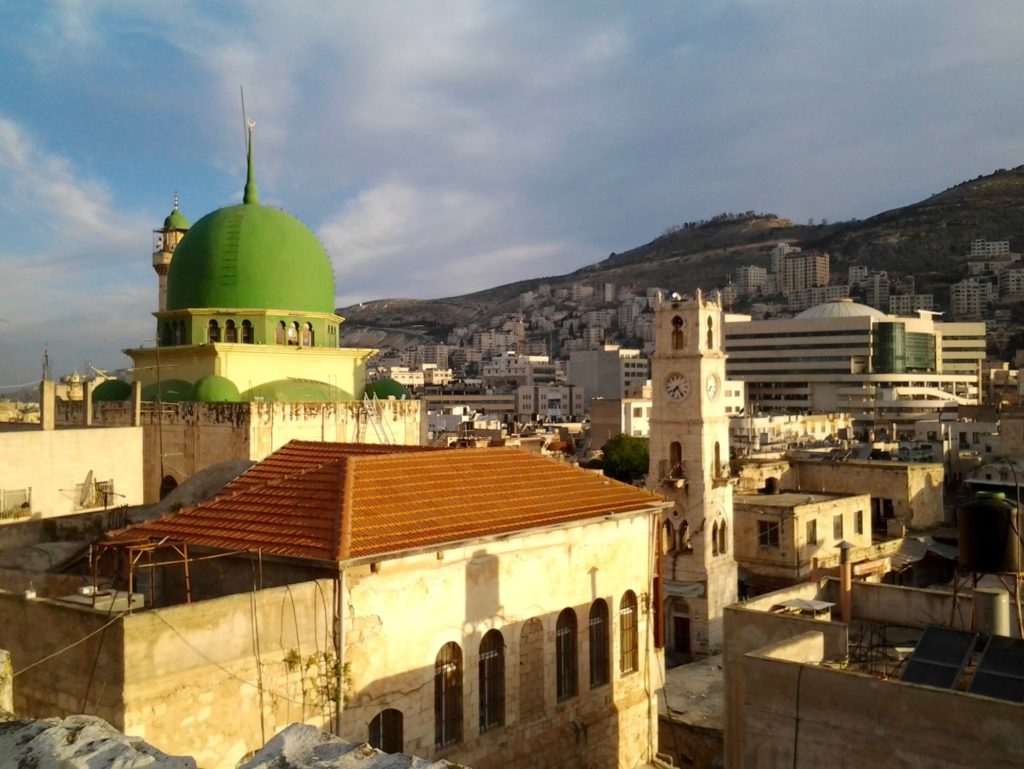
Today, there are many active OI members and many active lay Dharma Teachers in Israel, and five sanghas in Jerusalem, Tel Aviv, Mevasseret, Negev, and Ein Hod. Since Thay’s first visit, the sanghas in Israel have been greatly supported by regular visits from lay Dharma Teachers from other countries. The retreats this March were made possible with generous financial support from the wider Plum Village family.
Many retreatants already had some contact with the practice, and so came the retreat already with a certain stability and peace. And many of them are actively engaged in peace-building, doing their best to support one another in a very complex situation. “It is not easy to organize retreats either in Israel or in the Occupied Territories, and we could see that the organisers had great courage,” said Sr. Dao Nghiem. “In such a difficult situation, everyone is even more motivated to practice, because they need the practice so much. It is so essential to helping them bring peace and compassion to themselves, their families and the situation, as they all do their best to choose a different path from the path of violence.” As one of the retreatants shared, the sisters’ visit was “a special and much-needed boost for our practice at a challenging time.”
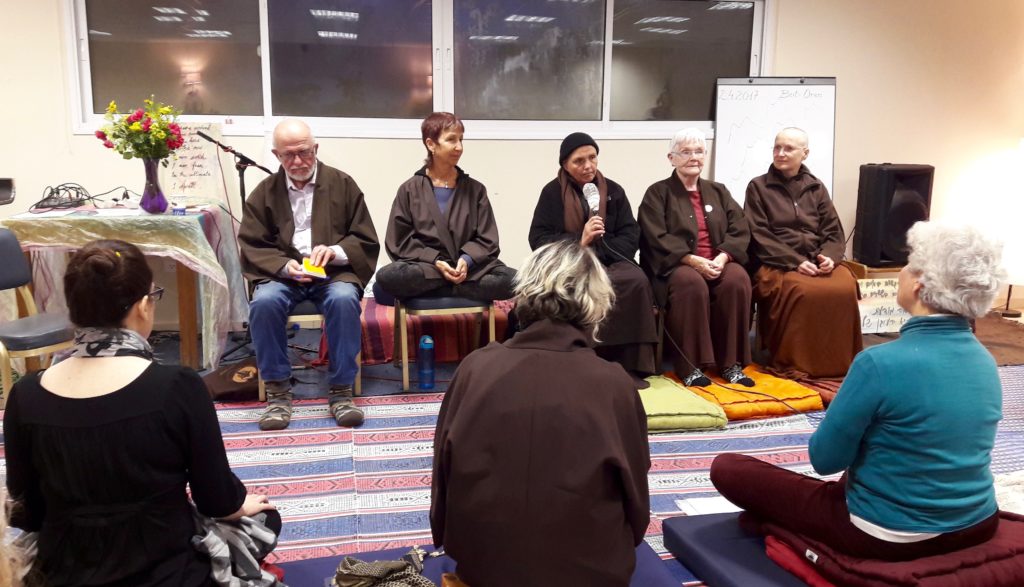
“Our first challenge was simply to help them to feel safe in the retreat,” said Sr Dao Nghiem. “We wanted to create conditions for them to water seeds of joy and happiness in the present moment.” This required diligent effort, as even on the first day of the retreat, Mohammed Hatab, a teenager, was killed by the military in a refugee camp not far from where they were practicing sitting meditation. “We could hear the gunshots but at the time, we didn’t know what they were,” said one of the retreatants. “But the retreat allowed us to take refuge in the practice and the sangha, so that, as a sangha, we can offer the practice as a refuge to others.”
The context of a retreat helps everyone to go deeper into their practice. “In the two retreats, we wanted to offer everyone the opportunity to embrace whatever emotions and feelings were there in their hearts,” said Sister Dao Nghiem. “Of course there is the energy of fear. Both sides feel threatened. But with the practice, everything can be embraced, accepted and gently transformed at a very deep level. Everyone felt profoundly grateful for the peace and solidity they could generate within themselves.”
“The retreat in Ramallah was the first opportunity for people from the Ramallah and Nablus sanghas to meet and practice together. It was so precious and joyful,” said one of the retreatants.
Sister Dao Nghiem shared how moving it was to see the young people on the retreat discover that there is “another way”, “another path”, another kind of future – not only the path of war and violence. “We could see on their faces that the retreat had made a difference. By the last day, everyone was more relaxed. The retreat restored a deep sense of trust in humanity. That we are all brothers and sisters.”
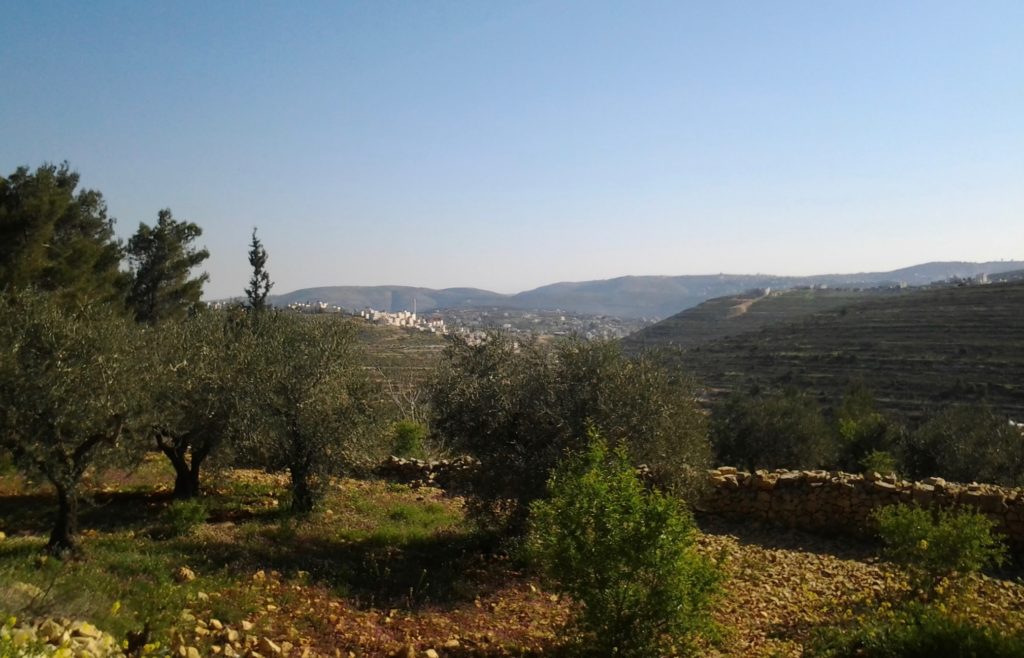
When asked about her personal feelings about travelling to share the Dharma in Israel for the first time, Sister Dao Nghiem shared that she felt deeply moved. First, to be in such an ancient, holy land, where so many cultures and religions and traditions meet. “I was struck by the hospitality and the gentle care of everyone we met. The spiritual dimension was very strong.” You can feel directly the presence of the past in the present moment, very strongly. In the rocks, in the buildings, in every step. As I was leading walking meditation, I could feel Thay’s presence in my feet: his compassion, his peace. I was very aware that we were walking in the Holy Land, on “holy ground”. My practice was to say “Shalom” (peace in Hebrew) as I placed one foot on the ground and “Salaam” (peace in Arabic) as I placed the next, to bring the energy of reconciliation into every step.”
It may not be easy to cultivate the seeds of peace and joy in a difficult environment, but it is possible. “Whatever little drop of peace and reconciliation we contributed to the situation,” said Sr. Dao Nghiem, “at least those drops were added.”
To find out more about Plum Village sanghas in Israel and Palestine, or to offer your support, please visit their webpage:
www.mindfulness-israel.org
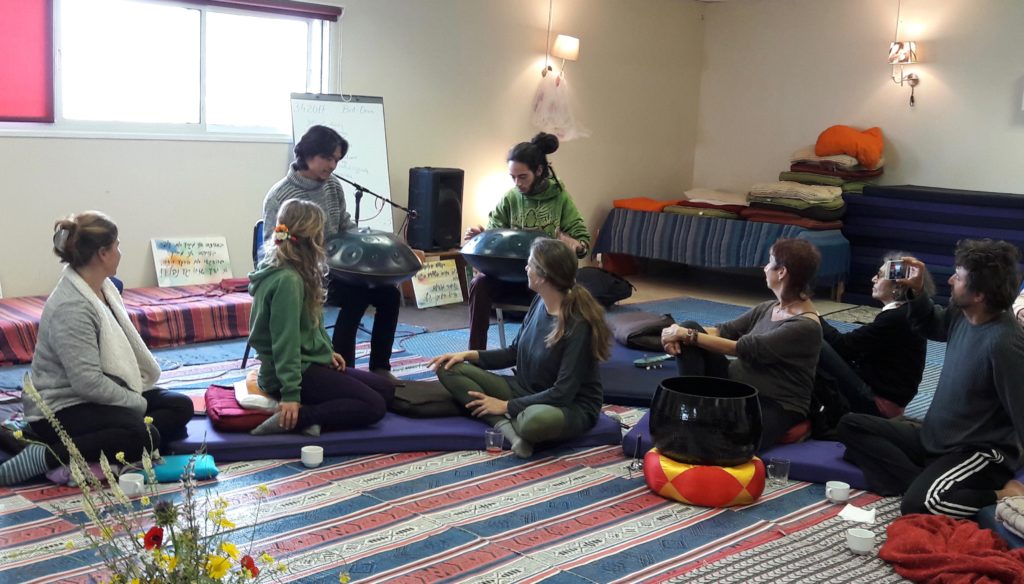


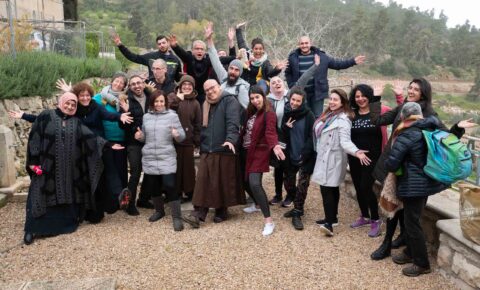
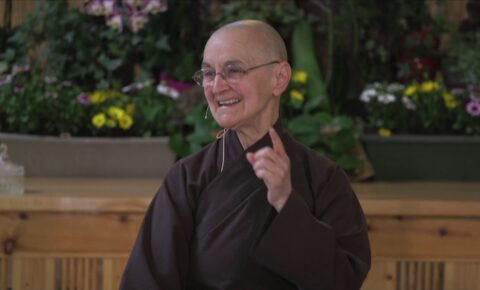
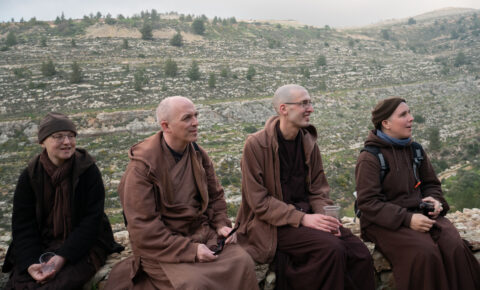
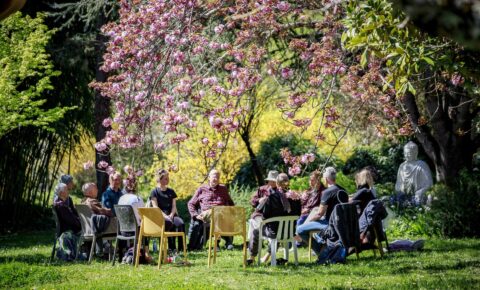
Share Your Reflections